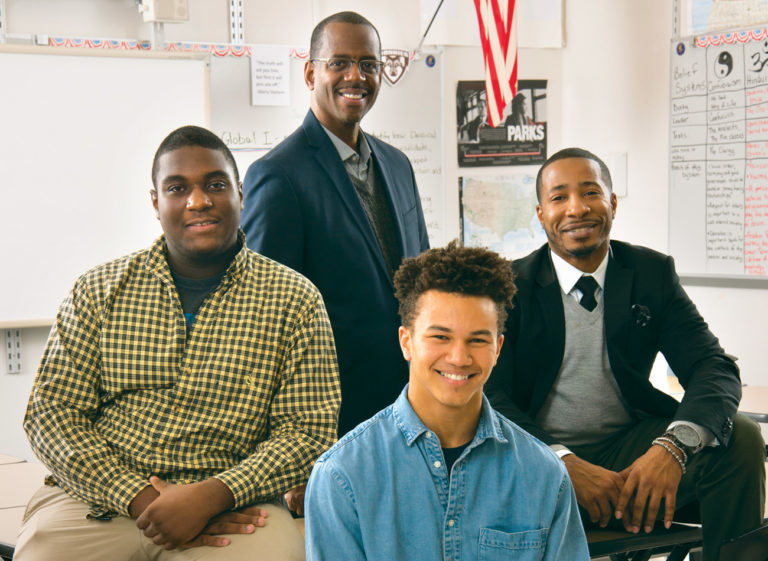

In the 1970s and 1980s, its anchor industries — including manufacturing, transportation and automobile production — were decimated by overseas business transfers and increased automation.
As in many communities, job loss and disinvestment disproportionately affected people of color. In Buffalo, that meant half of the city’s population faced a shrinking opportunity landscape.
But change agents like the Community Foundation for Greater Buffalo (CFGB) are focusing on the region’s economic health to ensure that racial equity is part of Buffalo’s comeback story.
The community foundation incorporated racial equity in its first strategic plan in 2007. Its committed leadership and compelling record of engaging business leaders in its collaborative racial equity work led to Buffalo being named as one of the Kellogg Foundation’s 14 Truth, Racial Healing & Transformation (TRHT) places in 2017.
“Our Board recognized the staggering statistics about race in our community and decided to do something different, more proactive to address this challenge,” says Felicia Beard, director of racial equity initiatives at the CFGB. “By rooting our work in data, we moved forward to develop and lead innovative cross-sector partnership to better serve the universal desire to ‘do good’.”

“You don’t have to have bad intentions to create barriers to success for people of color. But you do have to be intentional to remove these barriers.”
Born from that commitment was the formation of the Greater Buffalo Racial Equity Roundtable (Roundtable). The Roundtable is an unprecedented cross-sector collaboration, comprised of 39 leaders from public, private, nonprofit and faith institutions, convened to “advance racial equity and promote the change required to accelerate a shared regional prosperity.”
In 2016, the Roundtable released its comprehensive and visionary report, The Racial Equity Dividend: Buffalo’s Great Opportunity. The report detailed racial disparities across four interconnected areas — education and job readiness; criminal justice and safety; quality of life and neighborhoods; and income and wealth — and proposed policies to guide Buffalo’s continued transformation. The members of the Roundtable — CEOs, directors and community leaders — used the report to guide the development of a 9-Point Agenda focused on: racial equity training for business leaders; racial healing circles; strategies for an inclusive workforce and workplace practices; increasing academic achievement for males of color; juvenile justice reform; and improving outcomes for reentering citizens.
Furthermore, as individuals, Greater Buffalo Racial Equity Roundtable members are committed to supporting and promoting racial equity. The members have contributed more than $500,000 to the community foundation’s TRHT growth fund — an endowment created to sustain these efforts for the long-term.
Retired State Supreme Court Justice Rose Sconiers observed the devastating impacts of health, educational and economic inequities from her bench. Now the Roundtable chair, Hon. Sconiers has been a fixture in Buffalo’s legal and civic communities since the 1970s. “What distinguishes the community foundation, and the Roundtable, is our reach and influence in Buffalo,” says Hon. Sconiers. “We are all committed to achieving an expanded, more inclusive economy together.”
As part of the Roundtable, each member participates in “Racial Equity Impact Analysis Tool Training,” which prepares them to use a racial equity lens in all decision-making practices. This rigorous training helps leaders recognize the barriers to success people of color face within their organizations and institutions, and to develop innovative and meaningful changes in all relevant policies, practices, and procedures, including recruitment, retention, purchasing and contracting. To date, more than 1,100 decision-makers representing 78 organizations have participated in the training, which is supported by the community foundation.
“The Roundtable’s work is focused on the systems in our community that have traditionally held back people of color,” says Beard. “By bridging gaps in racial equity together, we can ensure that every one of our residents can live, work and raise their children to reach their highest potential.”
Share this Story